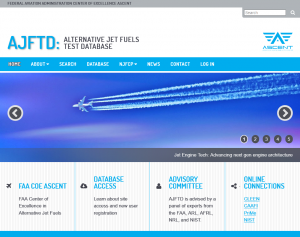ASCENT – the Aviation Sustainability Center – is a Federal Aviation Administration (FAA) Center of Excellence for Alternative Jet Fuels and Environment. ASCENT is funded by the FAA, NASA, the Department of Defense, Transport Canada, and the Environmental Protection Agency. ASCENT works to create science-based solutions for the aviation industry’s biggest challenges.
Click here for the ASCENT main website: Link
A coalition of 16 leading US research universities and over 60 private sector stakeholders committed to reducing the environmental impact of aviation, ASCENT also works in partnership with international research programs, federal agencies and national laboratories to create an all-inclusive research capability for whatever environmental impact obstacle the aviation industry faces.
Our research group is participating in a number of different capacities within ASCENT. We are part of the National Jet Fuel Combustion Program within ASCENT, which is a subgroup leading research into the combustion of alternative jet fuels for shortening the certification process. Additionally, we are leading project 33 within ASCENT to develop the Alternative Jet Fuel Test Database.
Click here for connection to the database: Link
This Alternative Jet Fuel Test Database is a foundational database for development and integration of current and newly emerging alternative jet fuels by integrating all pre-existing jet fuel relevant test data into a common archive which can provide guidelines for design and certification of new jet fuels in our future as well as steer federal policy.
 FAA National Jet Fuel Test Database
FAA National Jet Fuel Test Database
In the near term, the effort will focus on integration and analysis of pre-existing jet fuel test data from various government agencies and individual research groups with oversight from federal agencies such as Federal Aviation Administration (FAA) and the National Institute of Standards and Technology (NIST). In the long run, we hope that the database will act as ‘the comprehensive and centralized knowledgebase’ shared by the academic, government, and industrial communities in fuels research and policy, possibly facilitated on a cyber-based infrastructure.
The vision is to institute a database that can be utilized for the design and optimization of new propulsion and energy systems including development of next-generation engines, fuel delivery systems, as well as pollution mitigation technologies. Furthermore, it can provide data for screening and certification of newly emerging fuels and thereby impacting legislative measures and national policy. With prolific diversification of new jet fuels in our future, an effort to integrate dispersed information would be critical in providing the FAA with an overview of the latest developments and to support many other tangential fields of research impacted by integration of new alternative jet fuels.

